EHRA 2024: Late-Breaking Science Video Collection
Published: 22 April 2024
-
Views:
 1267
1267
-
Likes:
 7
7
-
Views:
 1267
1267
-
Likes:
 7
7
-
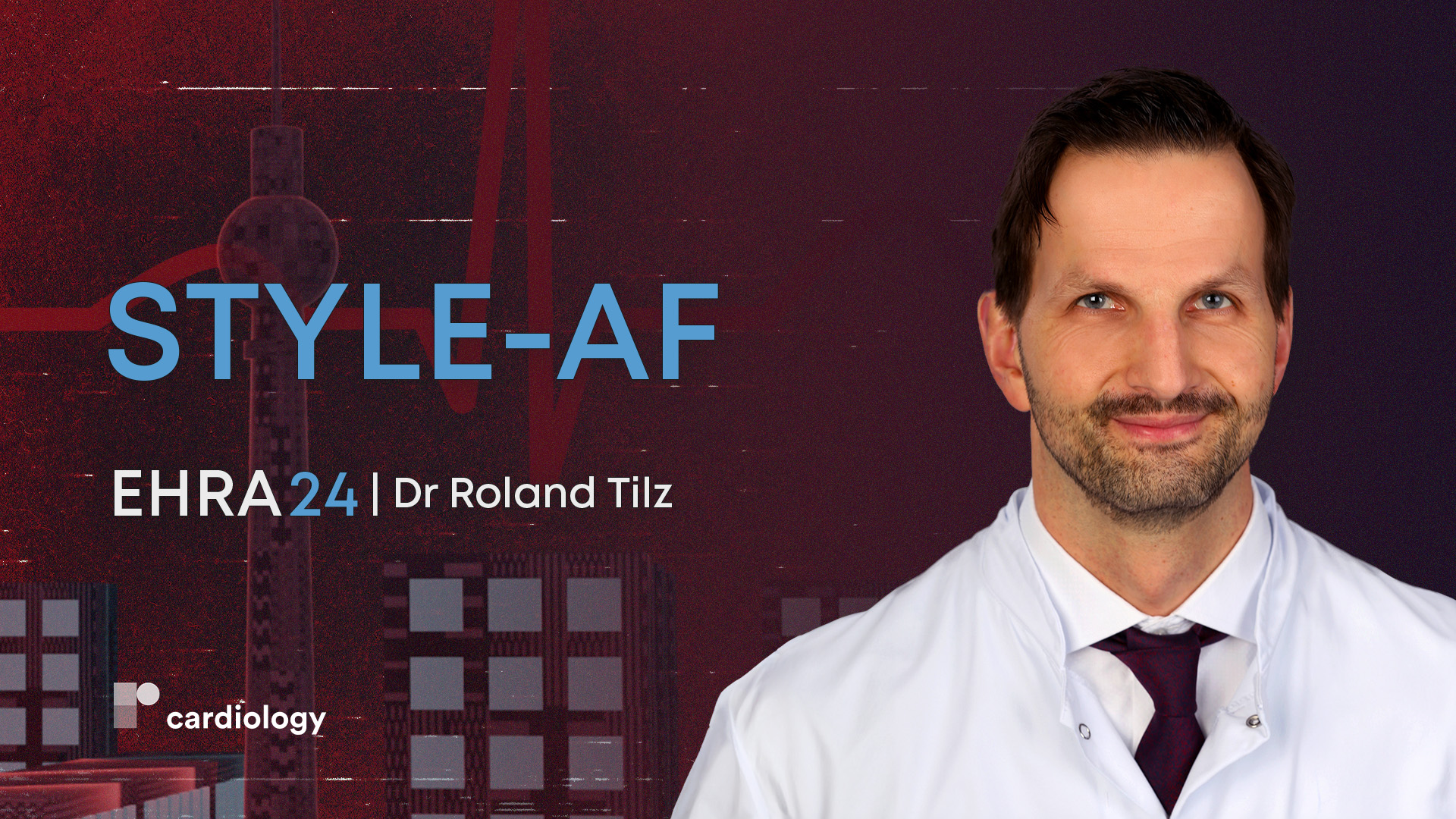 4m 54sPart 1 | Session 1 Venous Vascular Closure Vs Manual Compression: Style-AF Roland R Tilz
4m 54sPart 1 | Session 1 Venous Vascular Closure Vs Manual Compression: Style-AF Roland R Tilz
-
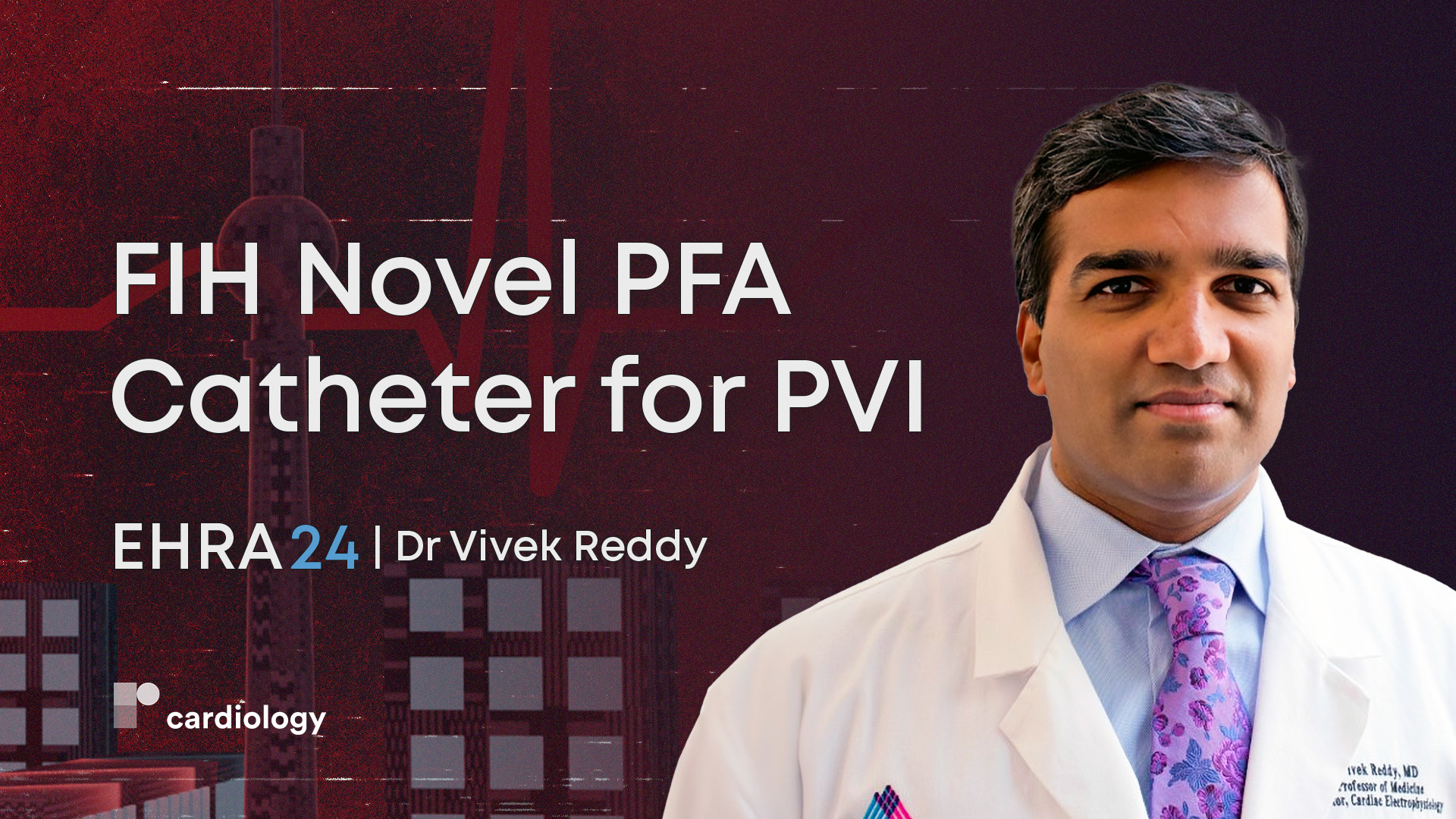 4m 3sPart 1 | Session 2 FIH Clinical Series of Conformable "Single Shot" PFA Catheter for PVI Vivek Reddy
4m 3sPart 1 | Session 2 FIH Clinical Series of Conformable "Single Shot" PFA Catheter for PVI Vivek Reddy
-
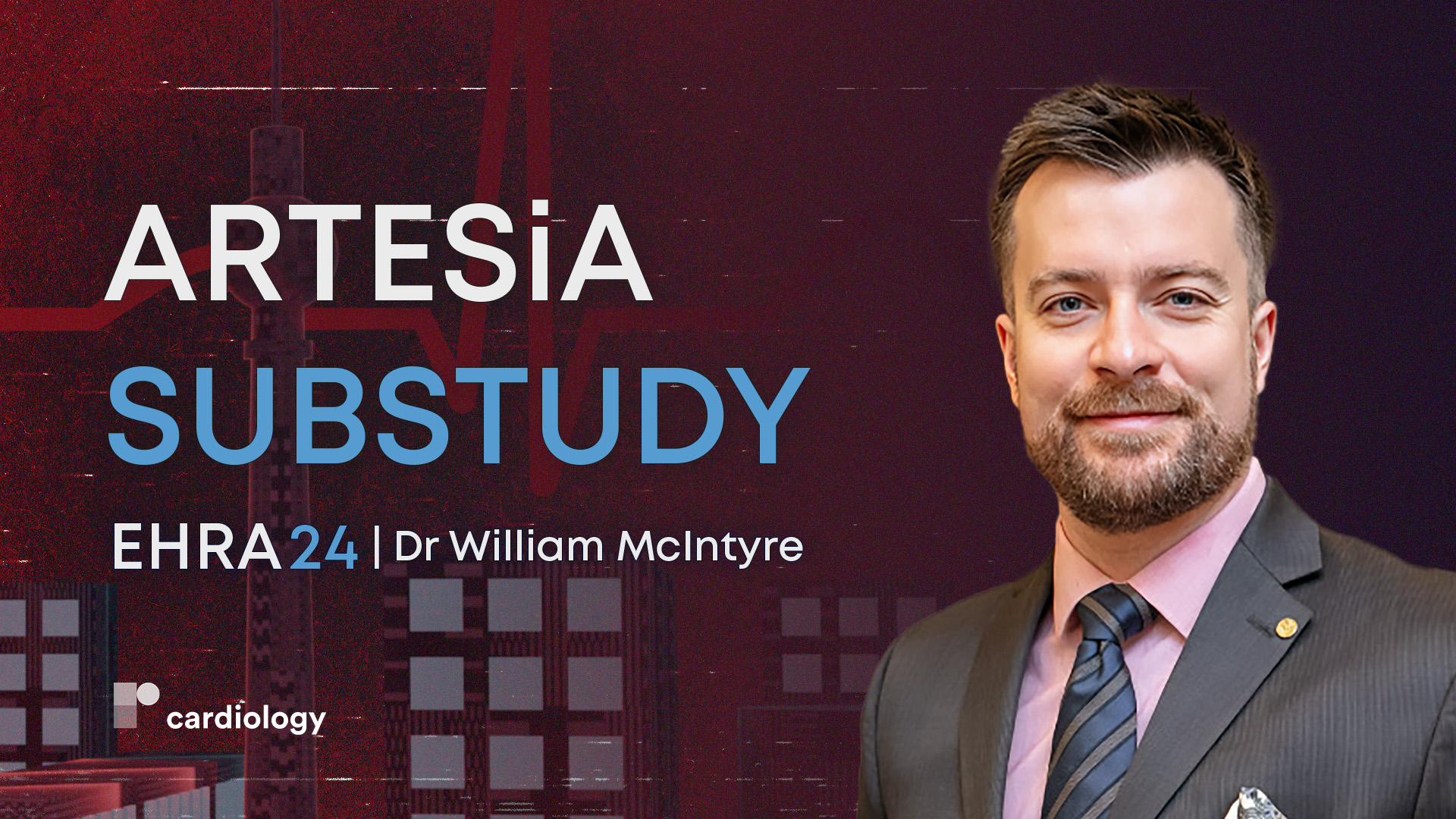 8m 5sPart 1 | Session 3 Risk of Stroke or Embolism and AF: ARTESiA Substudy William McIntyre
8m 5sPart 1 | Session 3 Risk of Stroke or Embolism and AF: ARTESiA Substudy William McIntyre
-
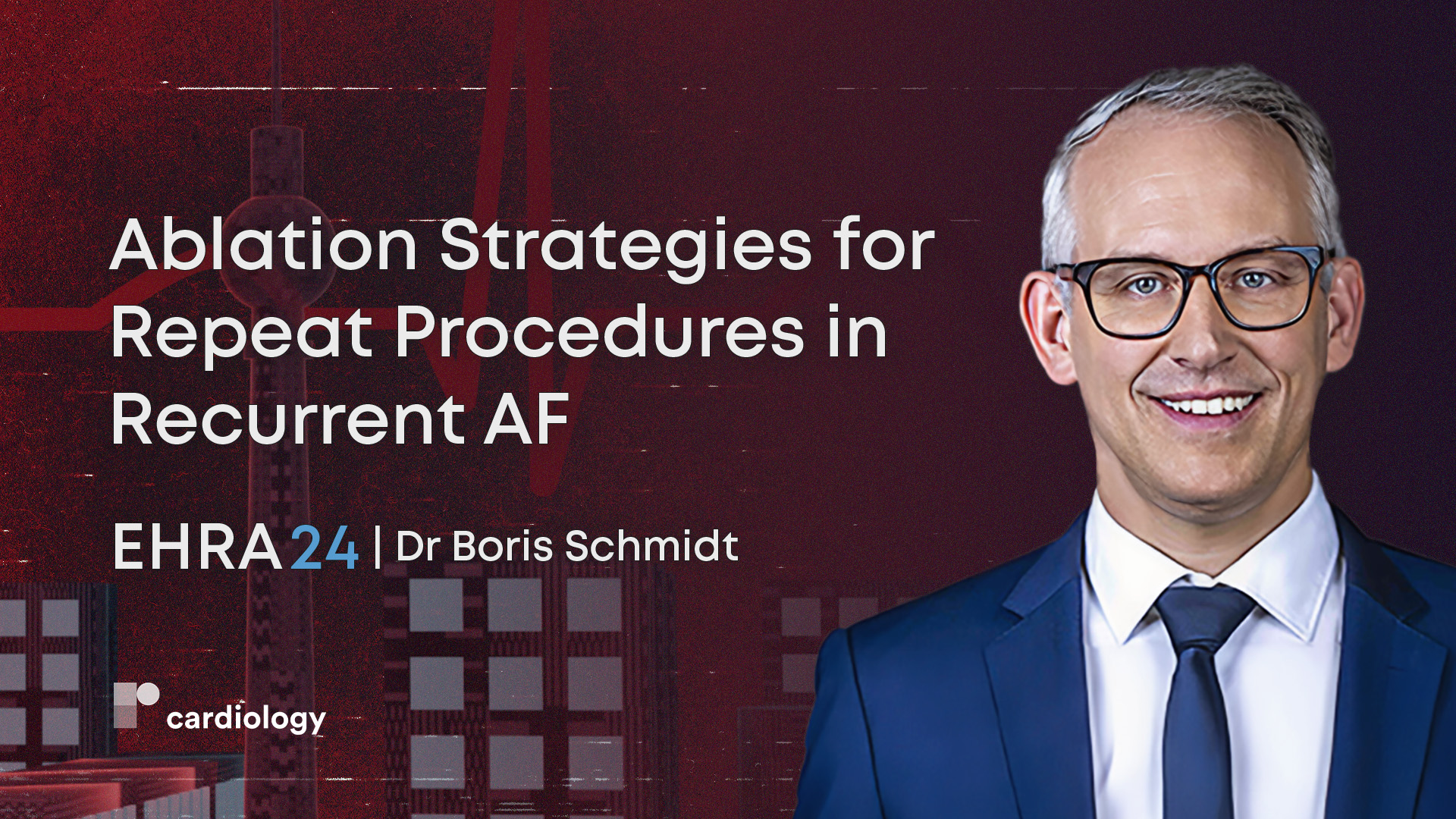 2m 53sPart 1 | Session 4 Ablation Strategies for Repeat Procedures in Recurrent AF: ASTRO Boris Schmidt
2m 53sPart 1 | Session 4 Ablation Strategies for Repeat Procedures in Recurrent AF: ASTRO Boris Schmidt
-
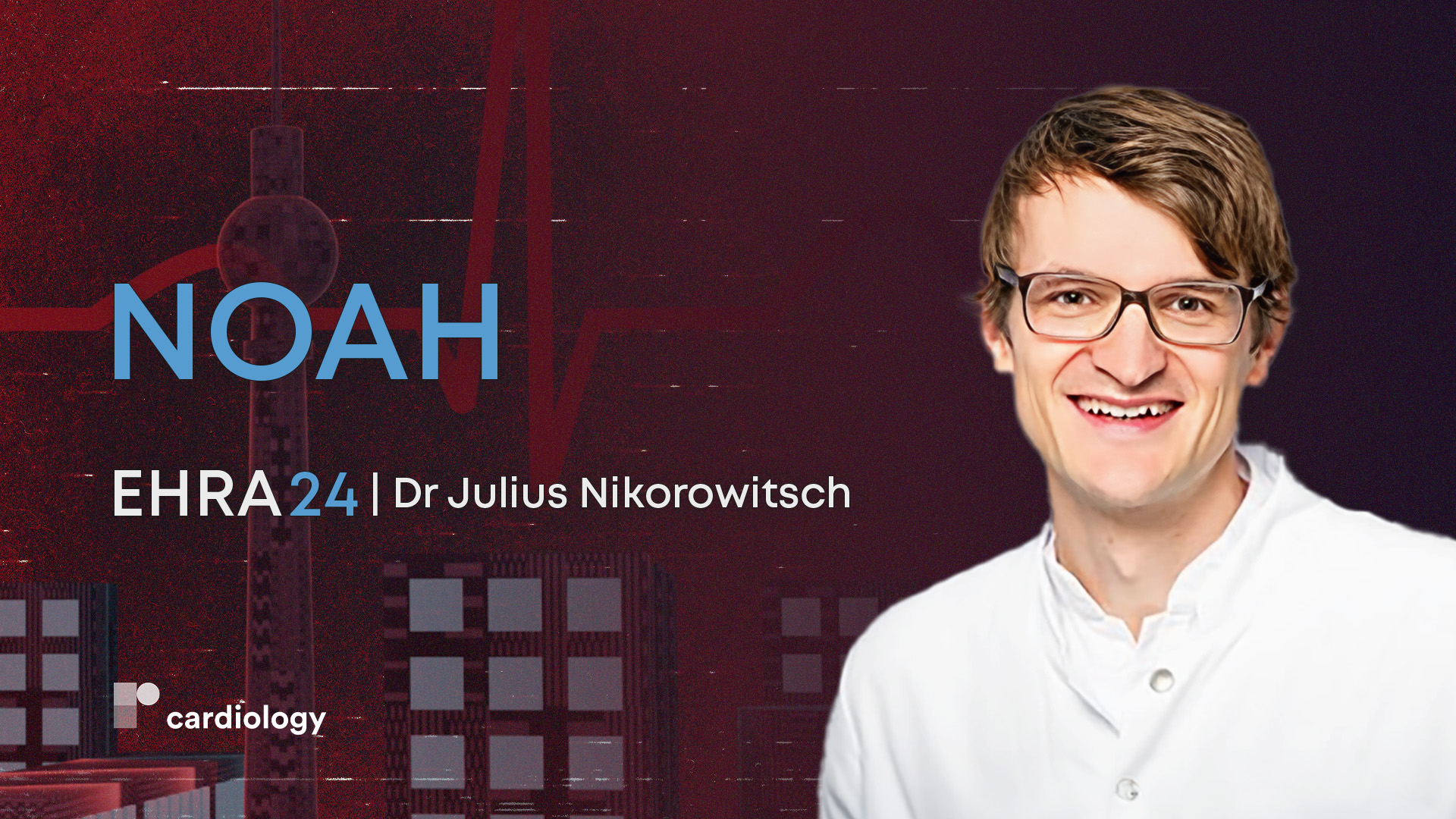 5m 26sPart 1 | Session 5 Non-Vitamin K Antagonist Oral Anticoagulant in AHRE Patients: NOAH Julius Nikorowitsch
5m 26sPart 1 | Session 5 Non-Vitamin K Antagonist Oral Anticoagulant in AHRE Patients: NOAH Julius Nikorowitsch
-
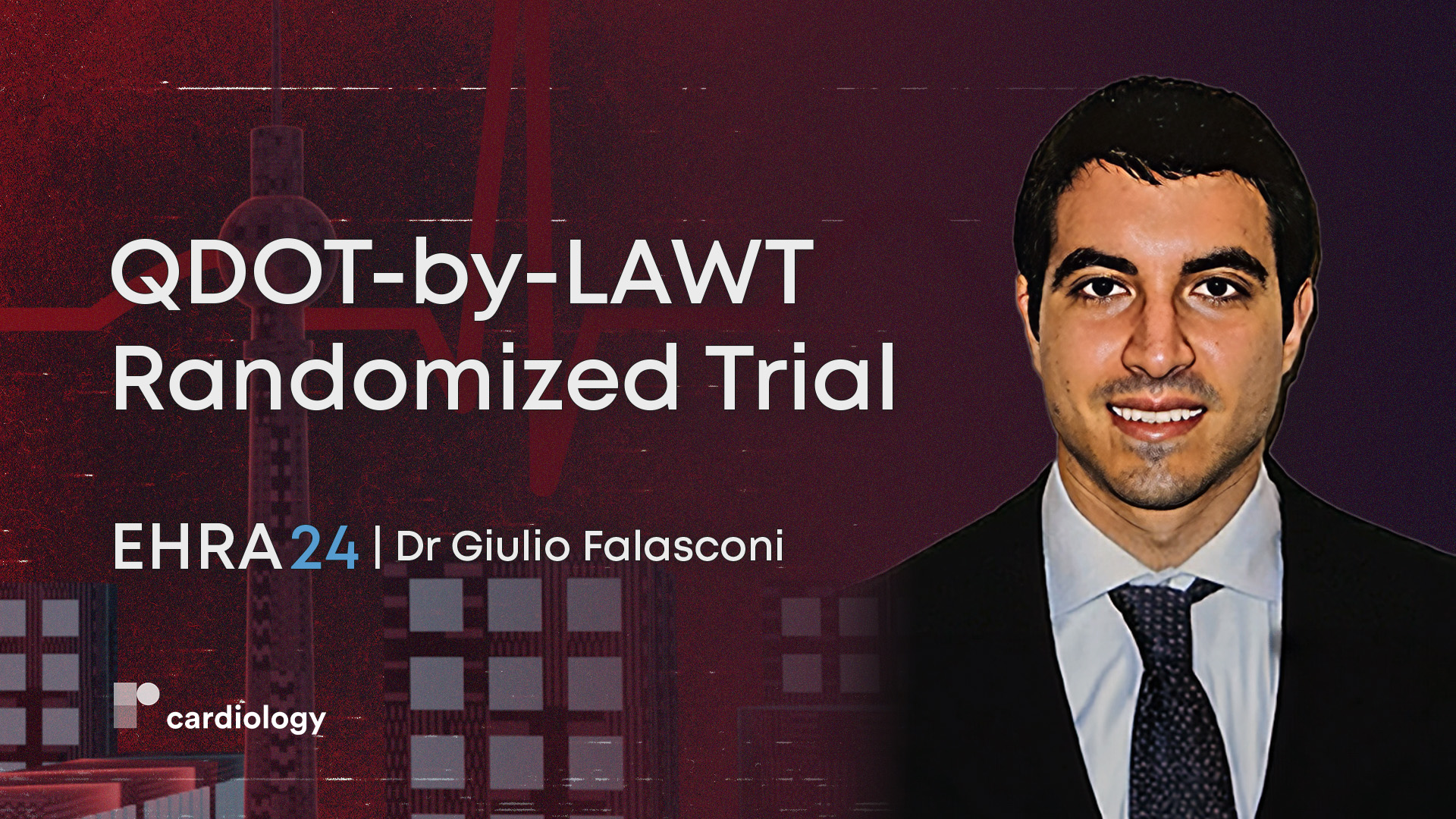 6m 51sPart 1 | Session 6 Personalised PVI: The QDOT-by-LAWT Trial Giulio Falasconi
6m 51sPart 1 | Session 6 Personalised PVI: The QDOT-by-LAWT Trial Giulio Falasconi
Overview
For short, concise coverage of the key data revealed, our accessible Expert Interviews were conducted with select faculty, focussing on the results, applicability and impact on future research and clinical practice.
More from this programme
Part 1
Expert Interviews
Part 2
Highlights
About the episode
EHRA 24 - In this short interview, we are joined by Dr Laurent Fiorina (Cardiovascular Institute Paris-Sud (ICPS), FR) joins us to discuss the findings from a clinical investigation into diagnosing conduction tissue disease using an AI-enabled single-lead coronary ECG device.
This observational, prospective clinical trial aims to investigate the performance of an artificial intelligence algorithm interpreting The aim of this study is to evaluate the ability of an artificial intelligence (AI)-enabled single-lead ambulatory electrocardiogram (ECG) to identify patients who experienced asystole due to sinus pause or complete heart block in the past 2 weeks.
The study included 319,396 unselected 14-day ambulatory ECG recordings (mean age 60.5 ± 17.8; 60% female) collected from five Independent Diagnostic Testing Facilities. Researchers developed a deep learning-based model using the last 24 hours of each recording to identify patients with daytime sinus pause of ≥3 seconds, prolonged sinus pause at any time of ≥6 seconds, or complete heart block documented during the previous 13 days of monitoring.
Interview Questions:
- What is the importance of this study?
- What was the study design and patient population?
- What are the key findings?
- What are some of the key challenges and opportunities in AI AF detection in 2024?
- What are your take-home messages?
Recorded on-site at EHRA in Berlin, 2024.








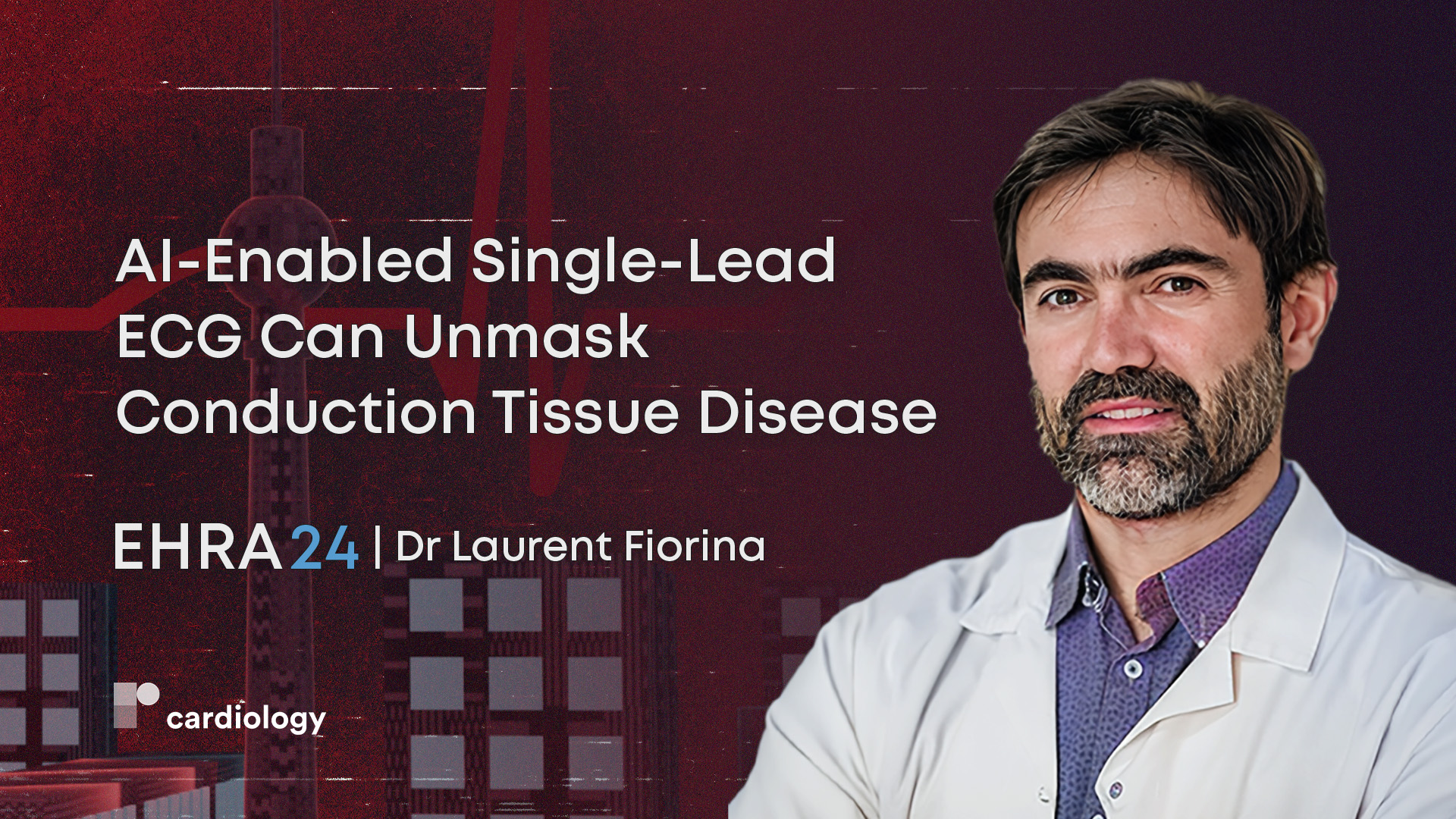
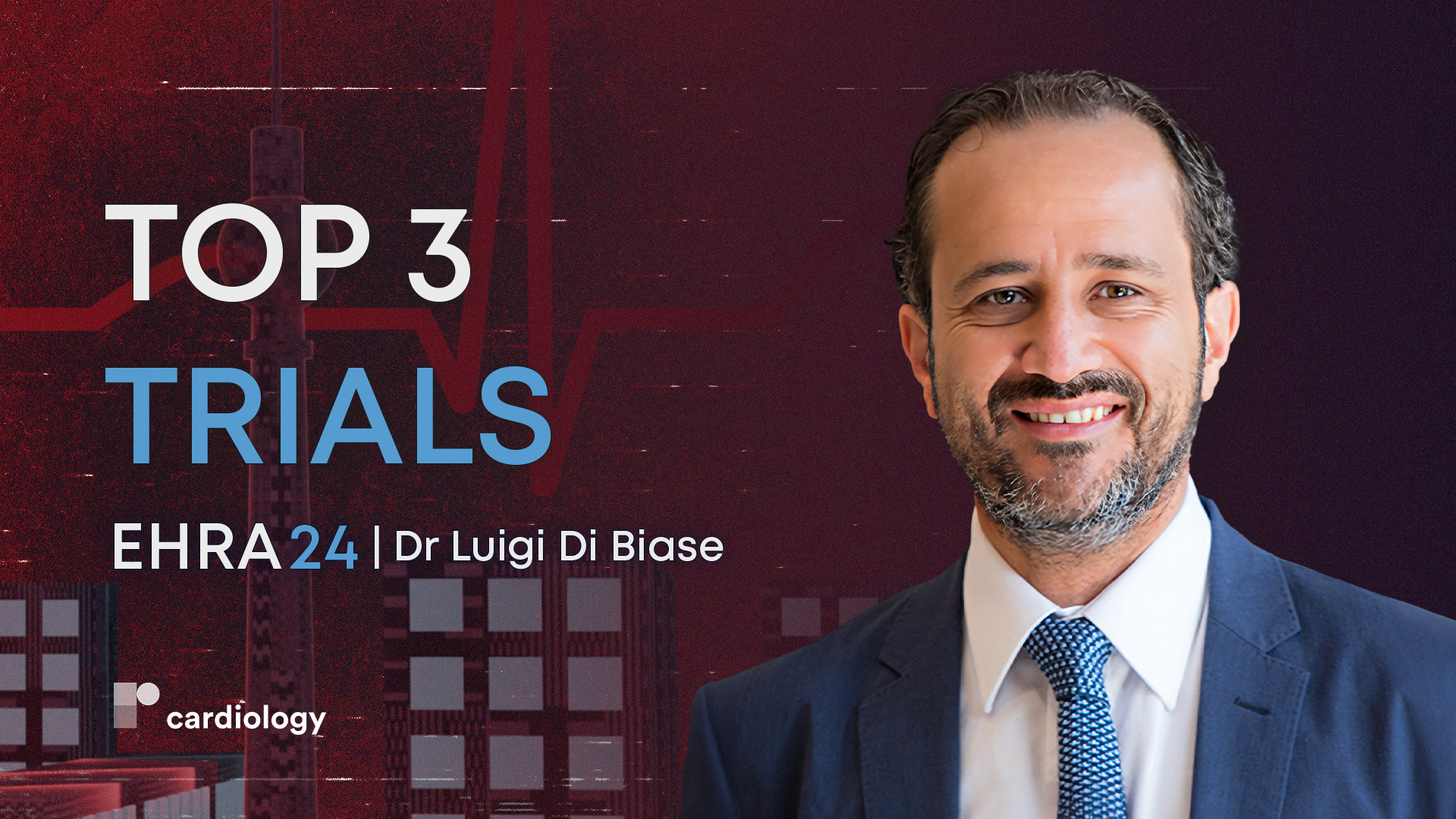
Comments